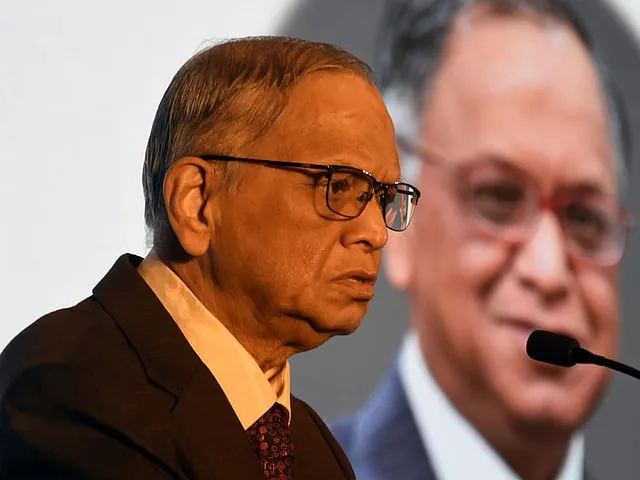Narayana Murthy Advocates 72-Hour Work Week, Sparks Health Concerns

Narayana Murthy, the founder of Infosys, has reignited a contentious debate regarding work culture in India by endorsing a 72-hour work week, inspired by China's '9-9-6' model. This model entails working from 9 am to 9 pm, six days a week, which totals 72 hours. Murthy argues that adopting such a work ethic could significantly boost India's economic growth.
This is not the first time Murthy has suggested lengthy work hours; in 2023, he proposed that Indians should work 70 hours a week to foster national progress. His latest comments have sparked a polarized response on social media, with many individuals voicing concerns that such extensive hours are unsustainable and harmful to work-life balance. Critics have advocated for a more balanced approach, emphasising the importance of employee well-being alongside productivity and sustainable growth.
Health professionals have responded strongly to Murthy's statements. According to Dr Pradeep Narayan Sahoo, a consultant in internal medicine at Manipal Hospital in Bhubaneshwar, excessive work hours can lead to serious health complications. He stated, “Clocking 72 hours a week may seem productive, but it takes a significant toll on health, often before individuals are even aware of it. Long working hours typically result in chronic stress, which keeps cortisol levels elevated, leading to fatigue, irritability, and anxiety.”
Dr Sahoo elaborated on the impact of long work hours on sleep, which is crucial for maintaining cognitive functions. He noted, “Poor sleep can trigger a range of health problems, including cardiovascular diseases and mental health issues. Prolonged work schedules often compromise sleep quality, leading to decreased concentration and overall productivity.”
Dr Pramod V Satya, a consultant at Manipal Hospital Millers Road in Bengaluru, reinforced these concerns, highlighting that prolonged work hours disrupt the core pillars of health: sleep, diet, and exercise. He remarked, “Irregular eating habits often stem from a demanding work schedule, with many resorting to junk food that contributes to obesity and metabolic disorders.”
He continued, “The absence of regular physical activity due to extended work hours can lead to cardiovascular risks, including hypertension and heart disease.”
Critics of the proposed work culture warn that extending work hours may exacerbate issues such as burnout, a phenomenon already prevalent in many industries. HR experts and legal professionals have pointed out that a 72-hour workweek would contradict existing labour regulations and risk normalising unhealthy work practices in sectors that already struggle with worker protection.
Moreover, gender analysts have highlighted that long work hours disproportionately affect women, who often bear the burden of unpaid household responsibilities. They caution that glorifying extreme work hours could further hinder women’s participation in the workforce and exacerbate existing gender inequalities in corporate India.
While some economists and business leaders have shown understanding towards Murthy’s viewpoint, arguing that it reflects a concern for India’s competitive edge, they acknowledge the need for systemic improvements in workplace efficiency and conditions. The debate surrounding Murthy's comments underscores a growing rift between traditional views of work centred on sacrifice and contemporary perspectives prioritising sustainable productivity and employee well-being.
As the discourse continues, questions remain regarding the balance between individual effort, corporate demands, and the overall health of the workforce. Murthy’s remarks have catalysed a vital national discussion about the future of work in India and how the country can pursue economic competitiveness without sacrificing the well-being and aspirations of its workforce.

UK Government Responds to MI5 Warning on Chinese Espionage Threats

Saudi Crown Prince Mohammed bin Salman Visits White House Amid Controversy

Sundar Pichai Warns of Risks in AI Investment Surge

Morgan Stanley's Top 10 Stocks as Indian Equities are Set to Recover by 2026





